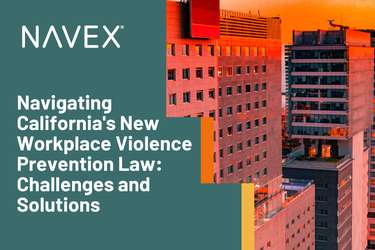Almost a year ago, I reflected on the role of CEOs in times of uncertainty. We were, of course, just at the beginning of a pandemic that has changed how we live and work. I called for CEOs like me to bring a new level of transparency, proactivity, honesty, humanity, and hope to our communications. It was these traits I believed would provide a level of trust and stability required during trying times.
Earning and keeping the trust of our employees has never been more important. Findings from the most recent Edelman Trust Barometer show that trust has eroded globally in governments, media, and NGOs – while trust in businesses has increased. Business has emerged as the most trusted institution (61 %) and people trust their own employers the most (76 %).
But let’s consider the context. Trust in information sources is at record lows; many people believe governments and media are biased. What Edelman refers to as a “raging infodemic” puts increased pressure on companies as a source of truth. Business leaders must play a bigger role in providing reliable information and stabilizing an environment of misinformation, at least among their own workforce.
Read: Instilling Trust in Times of Uncertainty
As business leaders look to become a trusted source of information, it should be noted that an overwhelming number of employees (86%) expect CEOs to speak up about important societal issues – the pandemic, job automation, societal and local community issues. I believe this is important to recruit and retain the best talent: employees increasingly want to work for companies that align with their own personal values. While it certainly is not our job as leaders to tell employees what to believe – we should be clear about our company’s values and where it stands on issues.
Some leaders are skeptical about the “multiple stakeholder economy” and want to avoid speaking to issues that don’t relate directly to the business. But the truth is, the range of issues (and events) that impact your business may be broader than you think. Customers, employees, investors and other economic stakeholders are setting the expectation bar higher; business leaders have a responsibility to fill the trusted information void.
Take COVID-19 vaccine hesitancy for example: at the time of the Edelman study, only 1 in 3 respondents said they were willing to get vaccinated as soon as it were available to them. Regardless of one’s position on vaccines, this is likely one of the biggest hurdles to bringing the economy back to full speed. CEOs will need to share with their employees their view on the role vaccines may have in back-to-the-office planning.
Finally, think it’s important for CEOs to be transparent about potential challenges on the horizon and share realistic expectations. We can be ambitious and optimistic while also being open and honest. Maintaining a regular channel of two-way communication with employees is imperative to building and maintaining trust.
Like many of you, I imagined the worst of the pandemic would be over by now, that we would be back to “normal.” We now know now that the next normal will be different. No going back, there is only forward. This is a reset moment. As business leaders, we need to embrace the trust placed in us, and drive the change that must happen for societal and economic stability.







